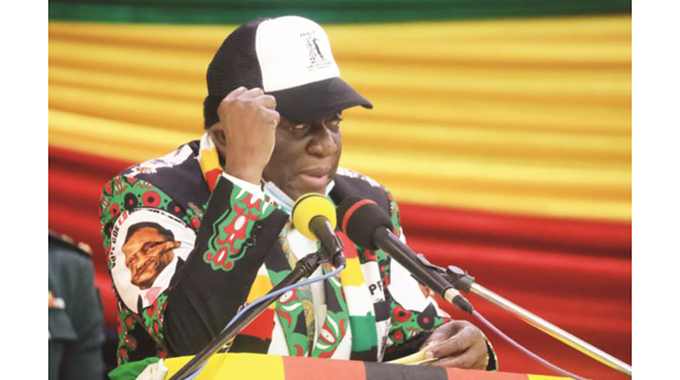‘Youths should be agents of change’

Political Editor
AS Zimbabwe marches towards Vision 2030, youths should be the change agents who will ensure the country realises its goals of attaining an upper middle class economy, President Mnangagwa said.
In his message on the 19th anniversary of the death of former Vice President Simon Vengai Muzenda who died on September 20 2003, the President said the late veteran nationalist stood for peace and unity.
The President said the characterisation of the late VP Muzenda as the “Soul of the Nation” was a reminder to the country to maintain and foster values of peace and unity he espoused.
“A respected politician among his contemporaries, Dr Mzee, as he was affectionately called, never relented in fighting colonial subjugation or racial discrimination whenever it manifested. He would not hesitate to rebuke and speak against those who sought to perpetuate this backwardness, retrogressive and divisive colonial legacy.
“Zimbabweans should take a leaf from the life of this humble patriot who played numerous roles, before and after our independence in 1980, that included nation building, socio-economic transformation programmes and international relations.
“Our youths especially, should embrace the values exuded and espoused so that they too can play leading roles in our communities as change agents for the attainment of Vision 2030 of an empowered, knowledge and technology-driven upper middle class income society,” said President Mnangagwa.
President Mnangagwa said the best that the country could do to honour him was to always remember the sacrifices that were made by its liberators to free Zimbabwe.
In an interview with journalists after the Zanu PF extraordinary Politburo meeting at the revolutionary party’s headquarters in Harare on Monday, President Mnangagwa challenged Zimbabweans to be patriotic.
“We have to recognise our fallen heroes like Vice President Muzenda, who played a significant role. He devoted his entire life to the liberation of this country.
“The duty for us is to continuously have the younger generation remember and be reminded that the freedom we are enjoying today did not come easily. It had many people who sacrificed their lives for us to enjoy this independence and this freedom,” said the President.
Dr Mzee was born on October 28, 1922 in Gutu District in the then Fort Victoria, now Masvingo Province. He attended Nyamande Primary School at the age of 14 and then proceeded to Gokomere Mission and afterwards to Domboshava in 1944 where he trained as a teacher.
As early as 1945, Dr Muzenda demonstrated a high degree of political consciousness when he turned down a farming scholarship to train as an agricultural demonstrator, arguing that the career would require him to supervise the killing of cattle belonging to his fellow African people under the colonial government’s countrywide de-stocking programme.
He taught at Empandeni Mission where he met former President Robert Mugabe and started a friendship that was set to blossom years later. His passion for education saw him enrol at Marianhill College in South Africa for a three-year Diploma in Carpentry.
In South Africa, Dr Muzenda was inspired politically by the activities of Reverend Michael Scott, who was then fighting the Group Areas Act in the then Apartheid Republic.
After completing the course in 1948, he taught at Mazenod Catholic School, Mayville, Durban until 1950 when he returned home where he was soon to marry his childhood sweetheart, Maud Matsikidze.
He got involved in burgeoning trade unionism in Bulawayo and from there his political career took off.











Comments